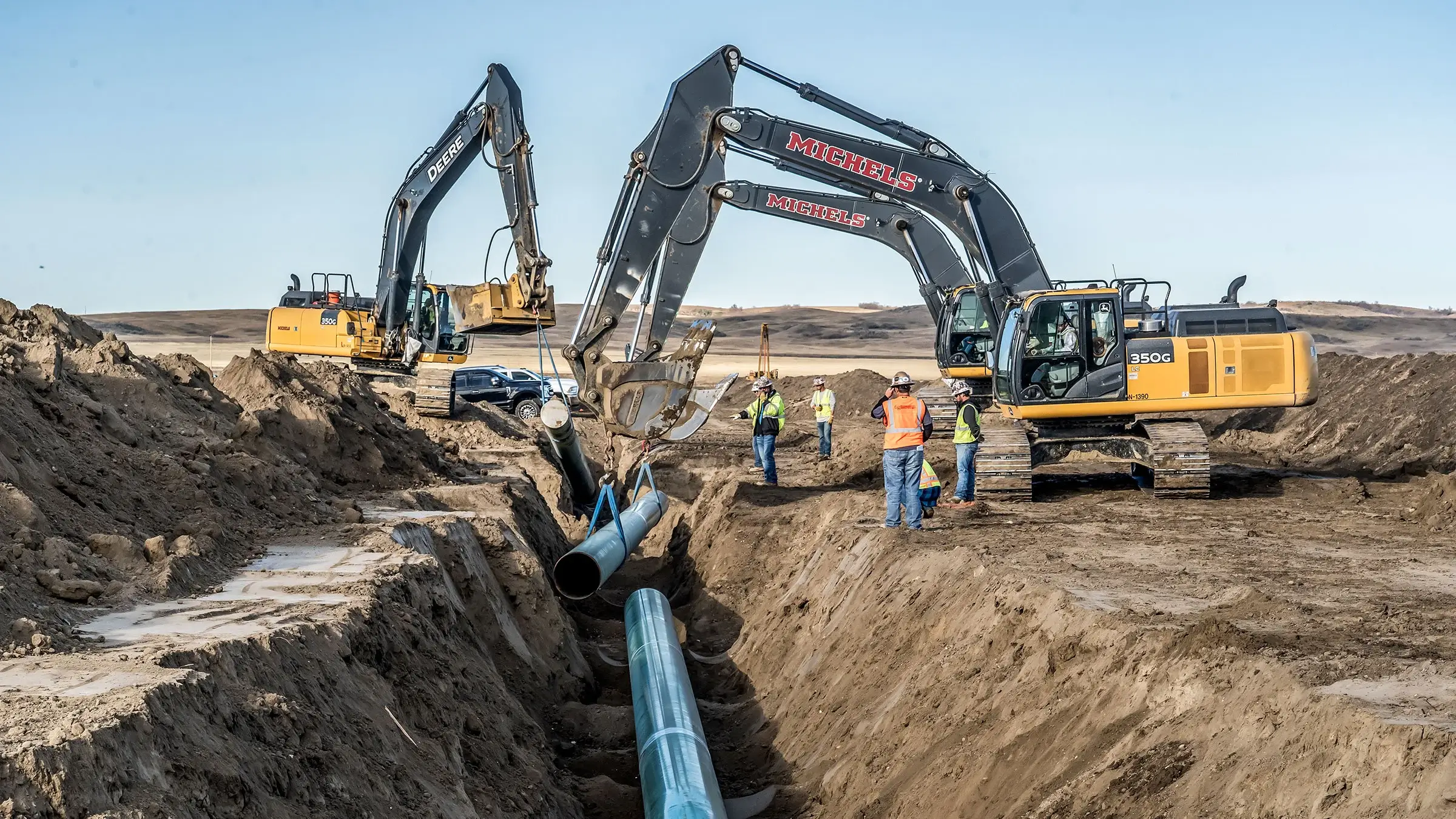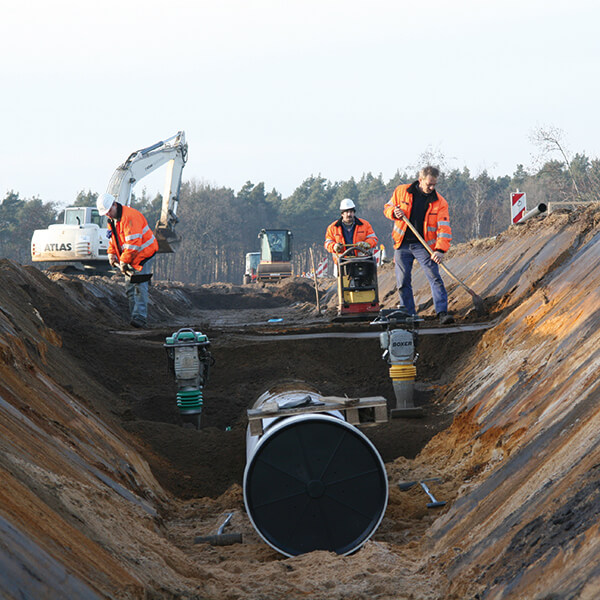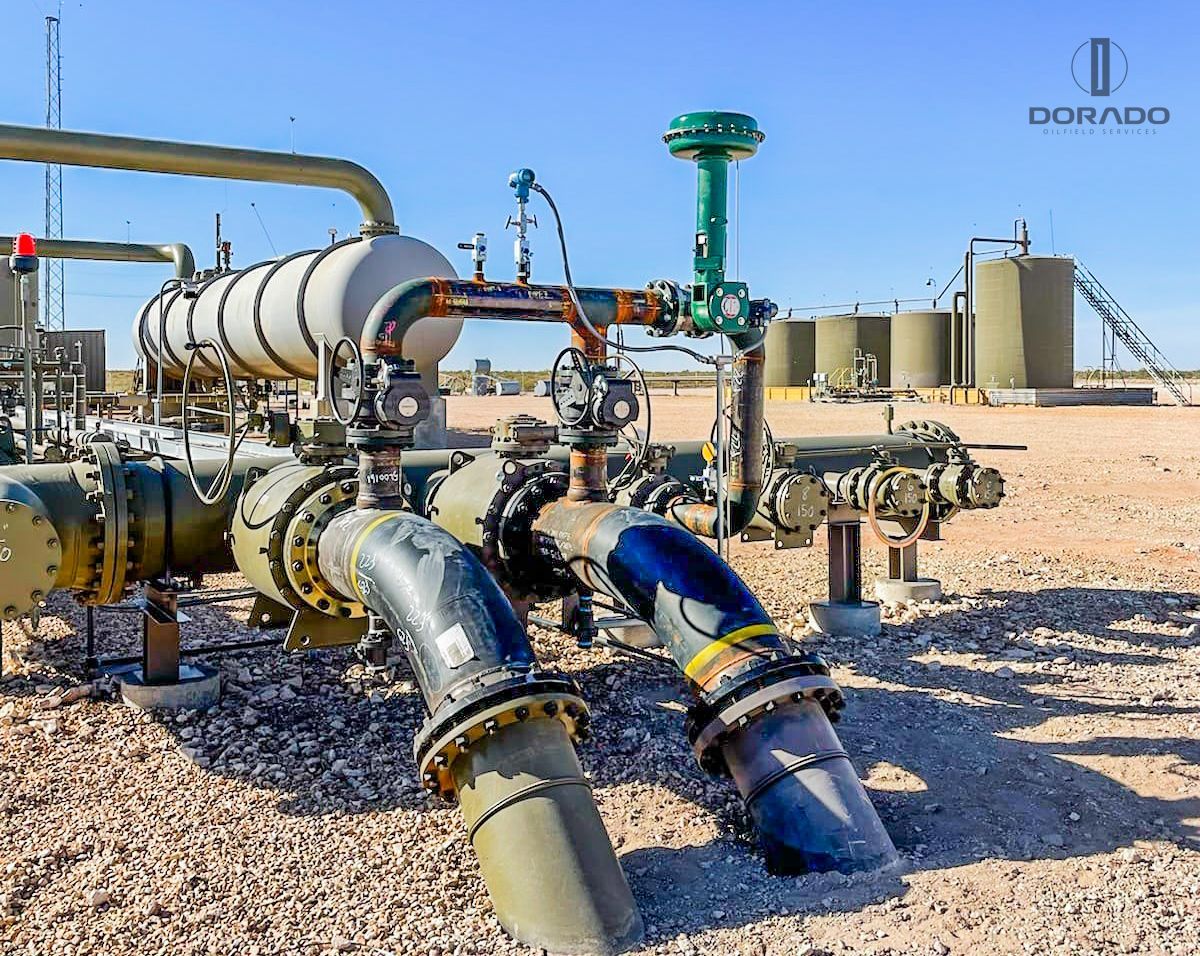10 Key Factors to Consider When Hiring Pipeline Construction Services
Wiki Article
The Necessary Guide to Understanding Pipeline Construction Services and Their Significance
Pipeline Construction solutions are fundamental to the transportation of crucial sources such as oil, gas, and water. These services include meticulous planning and implementation, sticking to stringent safety and security and environmental requirements. As the industry adapts to modern challenges, understanding its parts and ramifications becomes significantly essential. What variables contribute to the growing significance of these services in today's economic situation? The adhering to sections will discover these crucial elements.Review of Pipeline Construction Solutions
Pipeline Construction solutions encompass a variety of tasks necessary for the installation and upkeep of pipelines made use of to carry different substances, including gas, oil, and water. These solutions are crucial for assuring the safe and effective movement of sources from one place to another. The process generally begins with extensive preparation and style, which considers regulatory needs, ecological factors to consider, and logistical obstacles.As soon as planning is complete, excavation and grading of the land are carried out to prepare the site for Pipeline installment. This is adhered to by the actual laying of the pipelines, which includes welding or signing up with areas together to produce a continuous flow path. After installment, strenuous testing is carried out to guarantee integrity and security. Maintenance solutions are additionally given to attend to any kind of concerns that might emerge over time. In general, Pipeline Construction solutions play an essential function in supporting infrastructure for power and water circulation.
Secret Elements of Pipeline Construction
An effective Pipeline Construction task relies upon several key parts that guarantee the reliable and risk-free installment of the Pipeline system. Extensive website analyses are important, as they identify the ecological and geographical elements that may impact Construction. Next off, the selection of appropriate materials, such as pipes and fittings, is crucial for securing longevity and compatibility with the carried compounds.Progressed Construction techniques, consisting of trenchless modern technology and directional boring, enhance efficiency and reduce environmental effect. Effective task management is another critical component, working with labor, equipment, and timelines to fulfill project goals.
Furthermore, interaction among stakeholders, consisting of designers, service providers, and neighborhood authorities, assurances positioning on project specifications and demands. Complete high quality control procedures throughout the Construction procedure guarantee conformity with sector standards and take full advantage of the Pipeline's operational life-span. Jointly, these components develop the backbone of an effective Pipeline Construction job.
Security Criteria and Rules in Pipeline Construction

Regulative bodies, such as the Occupational Security and Health Administration (OSHA) and the Pipeline and Hazardous Materials Safety And Security Administration (PHMSA), stated details requirements that regulate Construction methods. These consist of methods for equipment usage, employee training, and emergency situation reaction treatments. By carrying out these requirements, Construction business not just safeguard their workers but additionally secure public depend on. Eventually, extensive precaution contribute to the lasting success of Pipeline tasks, ensuring they fulfill both environmental and functional expectations.
Environmental Considerations in Pipeline Projects

Ecological factors to consider are integral to the preparation and implementation of Pipeline tasks. These jobs must analyze possible effects on ecosystems, water resources, and regional wildlife. Conducting detailed ecological influence analyses (EIAs) is essential, allowing stakeholders to recognize and alleviate dangers before Construction begins.
Safeguarding delicate areas, such as habitats and wetlands, frequently needs executing certain layout attributes or alternate transmitting to minimize disruption. Additionally, Pipeline operators are charged with establishing strategies for preventing spills and leakages, which can have damaging effects on the setting.
Interaction with regional areas is essential, as public issues can result in task modifications that enhance environmental protection. Conformity with guidelines set by environmental companies ensures that jobs satisfy sustainability standards, promoting an equilibrium in between framework requirements and eco-friendly conservation. Eventually, dealing with ecological factors to consider not only safeguards nature however additionally promotes area count on and project practicality.
The Role of Innovation in Pipeline Construction
Modern technology plays a crucial role in contemporary Pipeline Construction, improving efficiency and precision. Advanced checking techniques permit specific preparation and implementation, reducing environmental impact and project delays. Furthermore, the integration of automation and robotics enhances procedures, reducing labor costs and enhancing security on Construction sites.Advanced Evaluating Methods
Advanced evaluating techniques play an important function in the effective implementation of Pipeline Construction projects. These approaches take advantage of advanced technology to ensure precise mapping and analysis of the surface where pipes will certainly be installed. Strategies such as Geographic Info Solution (GIS), LiDAR (Light Detection and Ranging), and 3D modeling enable designers to imagine and analyze the landscape, determining environmental worries and possible obstacles. By utilizing these innovative devices, groups can enhance precision in placing and alignment, considerably reducing the threat of errors throughout Construction. Furthermore, real-time data collection enables immediate modifications and notified decision-making throughout the task lifecycle. Eventually, these evaluating innovations add to boosted efficiency, safety, and sustainability in Pipeline Construction initiatives.Automation and Robotics

Economic Effect of Pipeline Facilities
Pipeline facilities plays a crucial role in shaping regional economic climates and facilitating profession. By providing a trusted ways of moving oil, gas, and other assets, pipelines decrease transportation prices and improve supply chain effectiveness. This infrastructure attracts financial investment, boosts work production, and promotes economic growth in surrounding areas.The Construction and upkeep of pipes contribute considerably to regional economic situations, producing many work possibilities in numerous industries, from engineering to labor. The influx of tasks typically results in enhanced costs in regional companies, even more strengthening financial activity.
In addition, pipelines enhance power safety by making certain a stable supply of sources, which is vital for residential demands and commercial operations. As areas come to be interconnected through Pipeline networks, they access to more comprehensive markets, increasing competition and economic article source strength. As a result, the economic impact of Pipeline framework is complex, affecting both instant local economic climates and broader regional development.
Future Trends in Pipeline Construction Providers
The future of Pipeline Construction services is advancing in response to technological developments, regulatory adjustments, and growing environmental factors to consider. Developments such as drones and robotics are streamlining examination and upkeep that site procedures, enhancing safety and security and effectiveness. Automation is poised to lower labor expenses and boost accuracy in Construction operations. Additionally, the raising emphasis on sustainability is prompting business to embrace environment-friendly products and techniques, lining up with international efforts to decrease carbon footprints.Regulatory frameworks are additionally adapting to resolve ecological impacts, pressing for greater transparency and responsibility in Pipeline tasks. In addition, the assimilation of smart technologies, consisting of real-time surveillance systems, is anticipated to improve the integrity and performance of Pipeline networks. As power demands shift towards eco-friendly resources, Pipeline Construction services will likely see an increase in projects associated with biofuels and hydrogen transport. Overall, these trends suggest a transformative duration for the Pipeline Construction market, concentrated on advancement and sustainability.
Often Asked Concerns
What Types of Pipelines Are Frequently Created?
Various sorts of pipelines are typically constructed, consisting of oil, gas, sewer, and water pipes - Pipeline Construction Services. Each serves distinctive objectives, facilitating the transport of crucial sources across regions while sticking to safety and security and environmental guidelinesJust how Long Does a Normal Pipeline Task Take?
The period of a normal Pipeline task varies significantly, commonly varying from a number of months to a few years. Elements affecting this timeline include job complexity, governing approvals, and environmental considerations that must be dealt with.Who Regulates Pipeline Construction Firms?
Pipeline Construction business are regulated by various government, state, and neighborhood companies, consisting of the Pipeline and Hazardous Materials Safety And Security Administration (PHMSA) and state utility compensations, making certain conformity with safety and security and environmental criteria throughout the Construction process.What Prevail Products Used in Pipeline Construction?
Typical products used in Pipeline Construction consist of steel, polyethylene, and PVC. Each material uses unique advantages such as resilience, resistance, and flexibility to deterioration, making them suitable for numerous applications in moving gases and liquids.
Exactly How Are Pipeline Construction Prices Estimated?
Pipeline Construction costs are estimated by analyzing elements such as material costs, labor rates, project intricacy, environmental considerations, and regulatory requirements (Pipeline Construction Services). Precise cost evaluation guarantees reliable budgeting and job preparation throughout the Construction procedurePipeline Construction services encompass a range of tasks vital Find Out More for the setup and maintenance of pipelines used to deliver various materials, consisting of water, oil, and gas. A successful Pipeline Construction task depends on a number of vital parts that assure the reliable and secure setup of the Pipeline system. Advanced checking strategies play a necessary duty in the effective execution of Pipeline Construction projects. Numerous types of pipes are frequently created, consisting of oil, gas, sewer, and water pipes. Pipeline Construction costs are approximated by examining elements such as product expenditures, labor prices, job complexity, environmental factors to consider, and regulative needs.
Report this wiki page